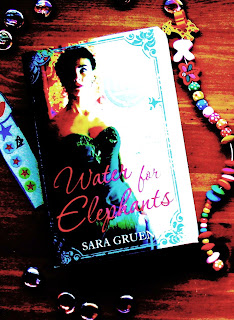It seems to me that Kathryn Stockett and Mae Mobley have much in common, and I like to think that they are one in the same, because that would mean that the good work begun by Aibileen, one of the narrators and heroines of the book, was not for nothing. Here was one little white girl who was going to learn that' coloured people and white people were just the same'. For this is a book full of heroines; wonderful, brave, strong women, whom I will never forget. But this book is as close as I will ever get to meeting them in person, although reading, and living, their stories comes in as a good second best.
There are three narrators in this novel: Aiblieen, Minny and Skeeter. The former two are black house maids, the latter is a white writer, who convinces them to tell their stories in a book; a very dangerous undertaking in Jackson, Mississippi in 1962. Stockett uses the personalised vernacular of each character in turn, each with a slightly different accent and idiosyncratic phraseology, to create a realism that is startlingly effective and compelling. I have to admit that Aibileen is my favourite character. That woman just oozed goodness with a capital G. It is for her sake that I found myself praying while reading the book, hoping that she would survive the tale, that she would escape the malicious revenge of Hilly Holbrook; the nasty, racist, society queen/bully.
And the prayers don't stop there. The tension is palpable on every page: we can never know what danger lurks around the corner for these women; what the racist population is capable of. Balanced between the intimate relationships that exists between servant and family, are the twisted, un-written laws of behaviour that dictate how blacks and whites should co-exist. The hypocrisy and double standards are obvious to our 21st Century eyes. However, Stockett cleverly and artfully, uses music, fashion, current affairs, and a lot of hairspray, to take us back to that 1960s mindset, until, we too, see the insurmountable mountain that is social integration, rise up before our very eyes, casting its long, impossible shadow. Every crunching footstep on the drive sends a shiver down our spines; every unexpected knock on the door leaves us in a cold sweat: their fear is our fear and Stockett could not have come up with a better way to enlighten us about the reality of life for thousands of black Americans living in the southern states at that time.
I love that this is a book about the power of the written word and reading. With books come words, and with words come voices. By writing their stories down, the characters are given power, given a voice; just as 'The Help' itself gives voice to the untold stories of so many black women who gave their lives to raising and loving generations of white children. Indeed, this story need not be confined to the southern states of America and black house maids: it could be easily be transferred to India, England, Singapore or anywhere where an inequitable system exists of maids and masters.
Twice, Harper Lee's classic, anti-segregation novel, 'To Kill a Mockingbird', is mentioned in this text, and I believe that there is a little of it's main character, Scout Finch, in the person of Skeeter Phelan; the tom-boy who loved reading more than playing with her dolls, and who, despite the racism that surrounded her, could at last declare that 'folks is just folks'. 'The Help', echoes Harper Lee's book but tells the story from their maid, point of view and it makes for fascinating reading. It is about human relationships, false impressions and the boundaries that we all place between ourselves and others. I think these two books make wonderful, complimentary, reading.
Finally, the title, 'The Help' is loaded with extra meaning: we see three women help each other, support one-another, to make meaningful, positive changes in their lives. Each gives a gift of some sort to the other, each becomes a better person because of their friendship. They help each other in ways that they cannot imagine or quantify - and isn't that what we all long for in a relationship? Yet, this book does not just teach us about friendship: it says so much about parenting and motherhood too. I will never forget the image of Aibileen taking her little charge by the hand and pressing her thumbs down in Mae Mobley's palms telling her, 'You are beautiful. You are smart. You are important'. If that isn't the job of every parent, I don't know what is. This is a hugely important book: I urge you to read it, and afterward to see if you can ever look on a uniform, a colour or a little child, in the same way again.


